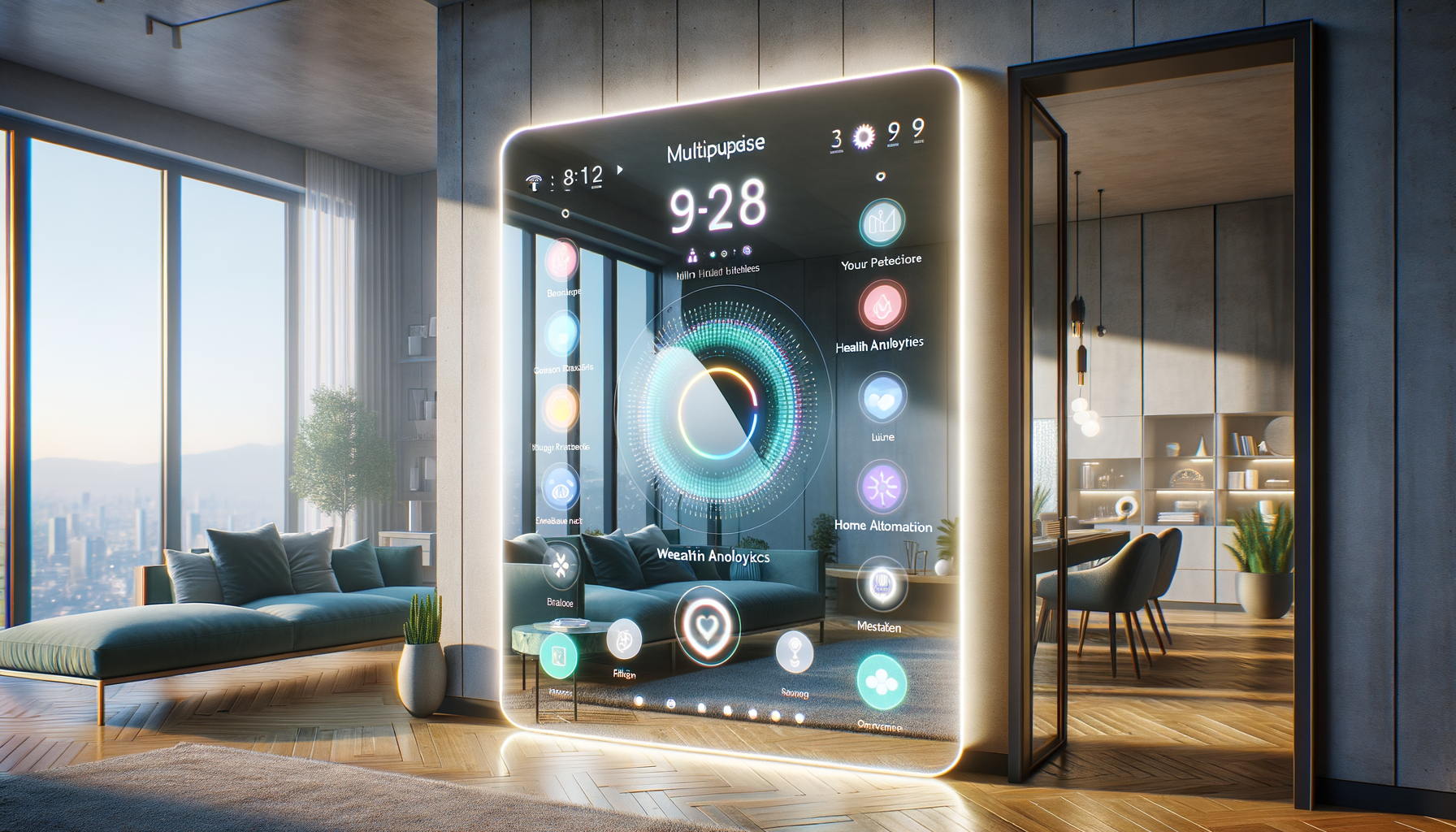Introduction to Smart Mirrors
Smart mirrors are revolutionizing the way we interact with our home environments. These mirrors, equipped with advanced technology, offer a range of functionalities that transform them from simple reflective surfaces into interactive devices. They can display weather updates, news, and even your daily calendar, all while you brush your teeth. The concept of smart mirrors has been gaining traction in recent years, with various models available that cater to different needs and preferences. As more homes become integrated with smart technology, smart mirrors are becoming an essential component of the modern household.
Features and Functionalities
The features of smart mirrors can vary widely, but they generally include a display screen integrated within the mirror surface. This allows users to access a variety of information without needing to look away. Some common functionalities include:
- Real-time weather updates
- News headlines
- Daily schedules and reminders
- Fitness tracking and health monitoring
Advanced models may also offer voice control, allowing users to interact with the mirror without physical contact. This hands-free operation can be particularly useful in bathroom settings. Moreover, some smart mirrors are equipped with facial recognition technology, which can provide personalized content based on the user’s preferences and habits. This level of customization makes smart mirrors not only practical but also a personalized tech companion.
Integration with Smart Home Systems
Smart mirrors are designed to integrate seamlessly with other smart home devices. They can connect to your smartphone, allowing you to control various functions through a dedicated app. This integration extends to other smart home systems such as lighting, security, and even kitchen appliances. For instance, you could adjust the lighting in your bathroom or receive alerts if someone is at your door, all while standing in front of your mirror.
Furthermore, smart mirrors can be synced with virtual assistants, enabling you to control other smart devices using voice commands. This interconnectedness enhances the convenience and efficiency of managing a smart home, providing users with a unified and cohesive experience. As the Internet of Things (IoT) continues to expand, the role of smart mirrors in a connected home is expected to grow even further.
Potential Challenges and Considerations
While smart mirrors offer numerous benefits, there are also some challenges and considerations to keep in mind. Privacy is a significant concern, as these devices often have cameras and microphones. Ensuring that these features are secure and that personal data is protected is crucial. Users should be aware of the privacy settings and permissions of their smart mirrors to prevent unauthorized access.
Another consideration is the cost. Smart mirrors can be a substantial investment, with prices varying based on features and brand. It’s important to evaluate whether the functionalities offered align with your needs and budget. Additionally, installation can be more complex than traditional mirrors, potentially requiring professional assistance to ensure proper setup and integration with existing smart home systems.
The Future of Smart Mirrors
The future of smart mirrors is promising, with ongoing advancements in technology paving the way for more sophisticated and versatile models. Innovations such as augmented reality (AR) could further enhance the user experience, providing interactive overlays that offer even more information and functionality.
As technology continues to evolve, smart mirrors are likely to become more accessible, with a broader range of options catering to different preferences and budgets. Their role in health monitoring, for instance, could expand, offering more comprehensive insights into personal wellness through integration with fitness trackers and health apps.
Overall, smart mirrors represent a significant step forward in the integration of technology into our daily lives. As they become more commonplace, they will undoubtedly play a pivotal role in the smart home ecosystem, offering convenience, connectivity, and a touch of futuristic flair.




Leave a Reply